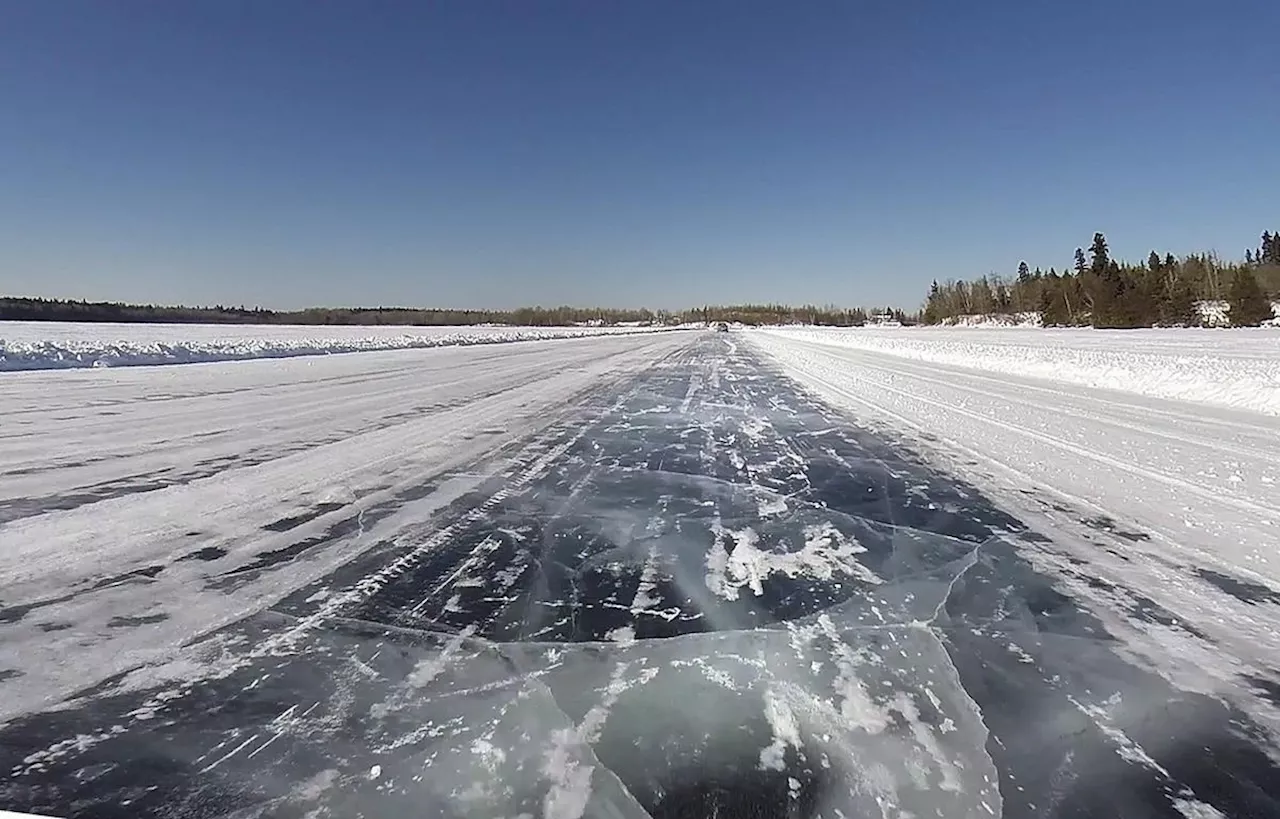This winter marked the shortest ice road season anyone can remember on Temagami First Nation.
There were just 11 days when the road – a roughly seven-kilometre stretch of packed snow and ice connecting the island First Nation to the mainland – was open.
The Nishnawbe Aski Nation, which represents 49 First Nations in Ontario, issued a state of emergency in February over ice road conditions. "For us locally here, we did not have as many people getting out onto the land, on the lakes, around our lakes, to do the ice fishing and, you know, their traditional, wintertime activities because the ice was a concern," McKenzie said of the community on Lake Temagami.
In Temagami First Nation, the community is accessible by barge in the summer. Some fly-in First Nations to the north, on the other hand, have no option besides trucks on the winter roads to move material and equipment too large to fit on small planes. While the ice is too thin for larger vehicles, the First Nation was still operating a snowmobile shuttle to the mainland as of this week. But relying on those machines to get on and off the island also comes with its challenges, McKenzie said.
Canada Latest News, Canada Headlines
Similar News:You can also read news stories similar to this one that we have collected from other news sources.
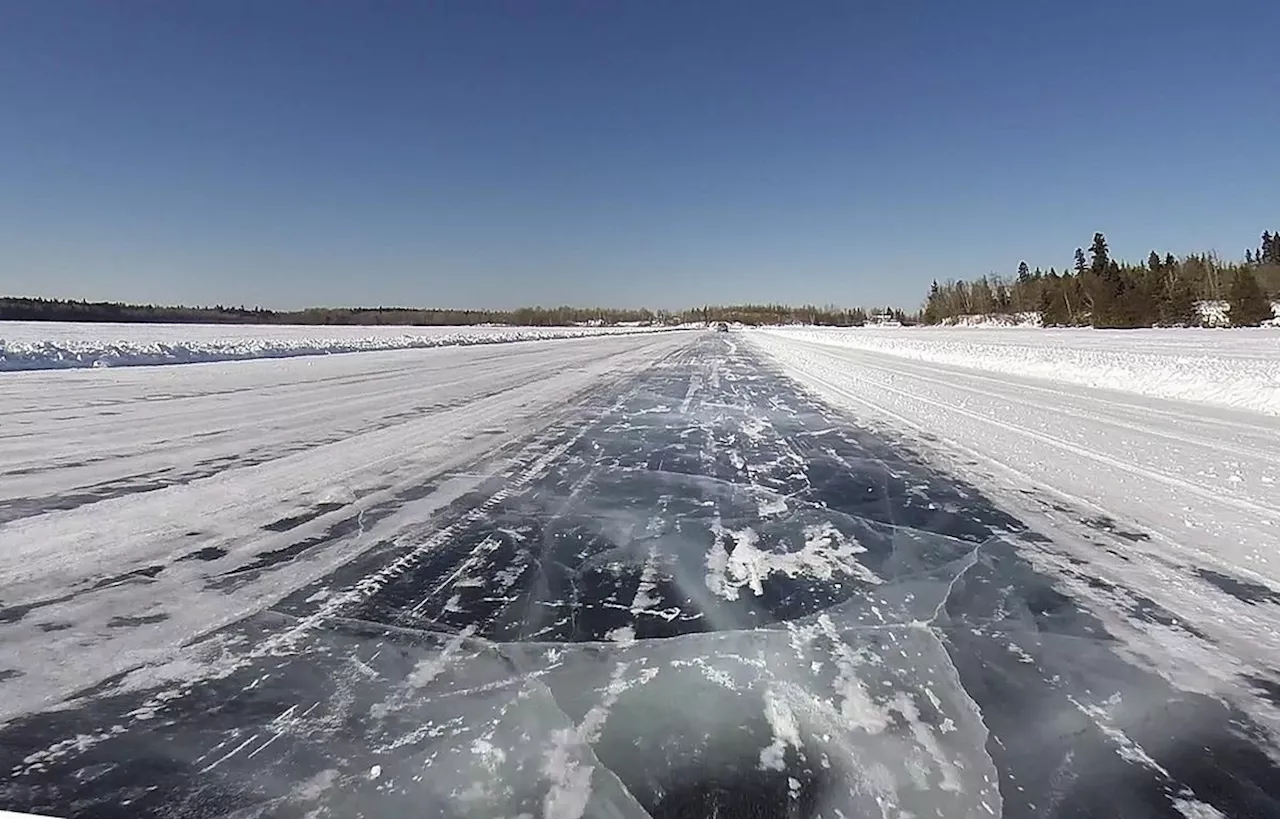 Short season on Ontario southern ice road makes First Nation life unpredictableThis winter marked the shortest ice road season anyone can remember on Temagami First Nation.
Short season on Ontario southern ice road makes First Nation life unpredictableThis winter marked the shortest ice road season anyone can remember on Temagami First Nation.
Read more »
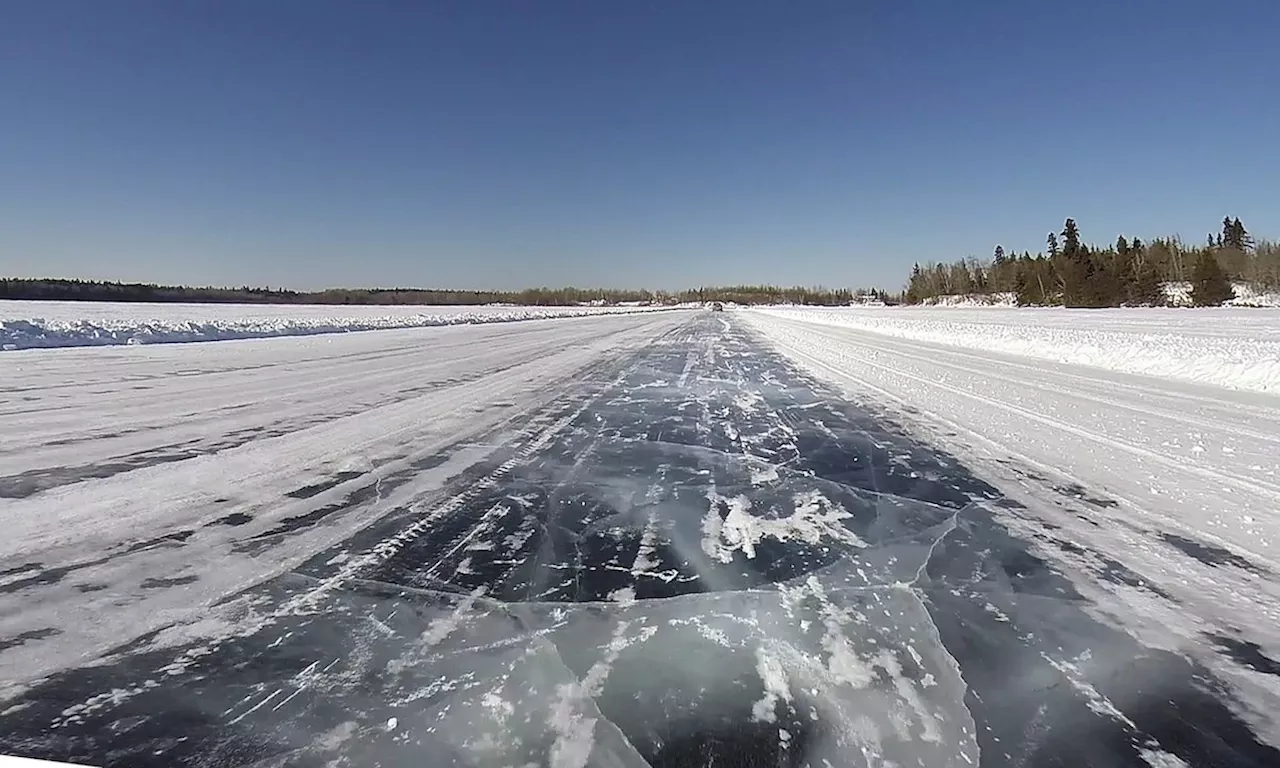 Short season on Ontario southern ice road makes First Nation life unpredictableThe roads are a lifeline for 32 remote First Nations, a way to more easily, and affordably, deliver everything from basic goods to construction materials to be used in summer
Short season on Ontario southern ice road makes First Nation life unpredictableThe roads are a lifeline for 32 remote First Nations, a way to more easily, and affordably, deliver everything from basic goods to construction materials to be used in summer
Read more »
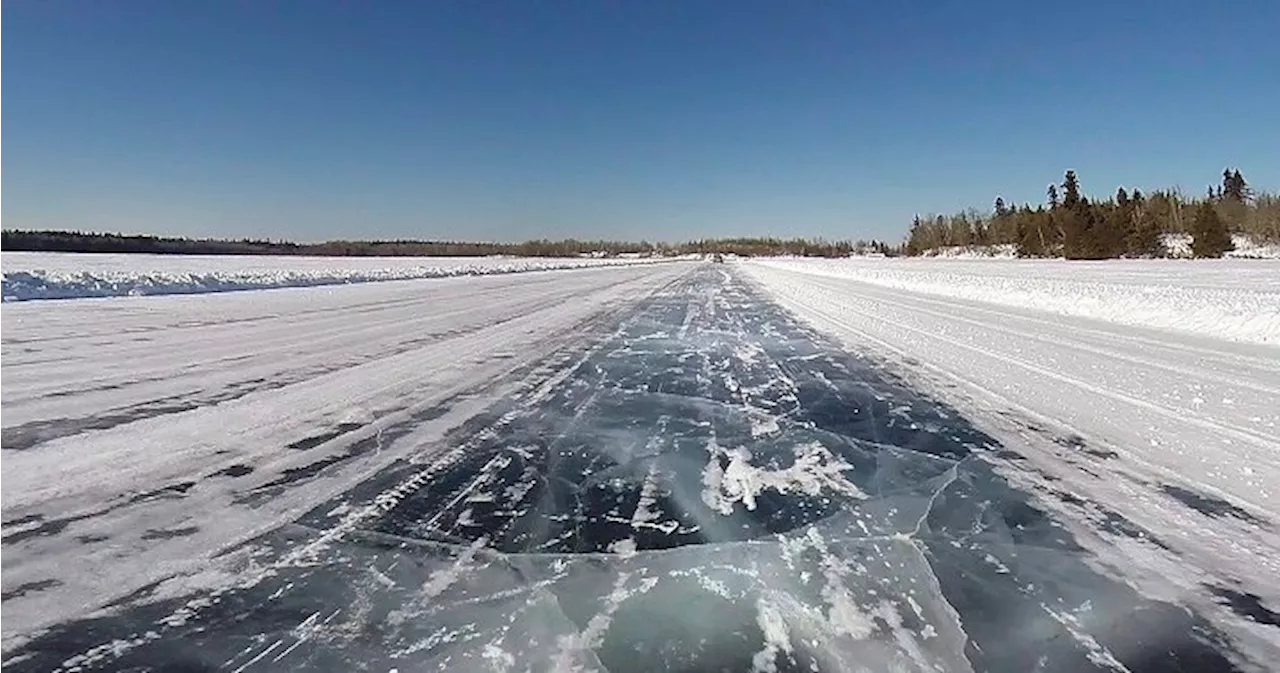 Short season on Ontario southern ice road makes First Nation life unpredictableThis winter marked the shortest ice road season anyone can remember on Temagami First Nation, with just 11 days when the road connecting the island to the mainland was open.
Short season on Ontario southern ice road makes First Nation life unpredictableThis winter marked the shortest ice road season anyone can remember on Temagami First Nation, with just 11 days when the road connecting the island to the mainland was open.
Read more »
 Ontario Government's Plan to Freeze Tuition Falls Short of Expert Panel's RecommendationsThe Ontario government's plan to freeze tuition for another three years and add more than $1-billion in funding for colleges and universities amounts to about half of what an expert panel it appointed said was needed to stabilize the finances of the province's postsecondary system. Minister of Colleges and Universities Jill Dunlop announced on Monday more than $900-million over three years in what the province is calling a sustainability fund, as well as about $400-million in new funding in other areas. The province also extended a tuition-fee freeze it brought in after a 10-per-cent cut to domestic tuition in 2019. 'I will not apologize for continuing to freeze tuition in this province,' Ms. Dunlop said at a news conference at Queen's Park. She said people are struggling with affordability and the government doesn't want to add to the burdens faced by students and their parents. Monday's announcement was a response to an expert panel on postsecondary finances convened by the province last March after the insolvency at Laurentian University in 2021
Ontario Government's Plan to Freeze Tuition Falls Short of Expert Panel's RecommendationsThe Ontario government's plan to freeze tuition for another three years and add more than $1-billion in funding for colleges and universities amounts to about half of what an expert panel it appointed said was needed to stabilize the finances of the province's postsecondary system. Minister of Colleges and Universities Jill Dunlop announced on Monday more than $900-million over three years in what the province is calling a sustainability fund, as well as about $400-million in new funding in other areas. The province also extended a tuition-fee freeze it brought in after a 10-per-cent cut to domestic tuition in 2019. 'I will not apologize for continuing to freeze tuition in this province,' Ms. Dunlop said at a news conference at Queen's Park. She said people are struggling with affordability and the government doesn't want to add to the burdens faced by students and their parents. Monday's announcement was a response to an expert panel on postsecondary finances convened by the province last March after the insolvency at Laurentian University in 2021
Read more »
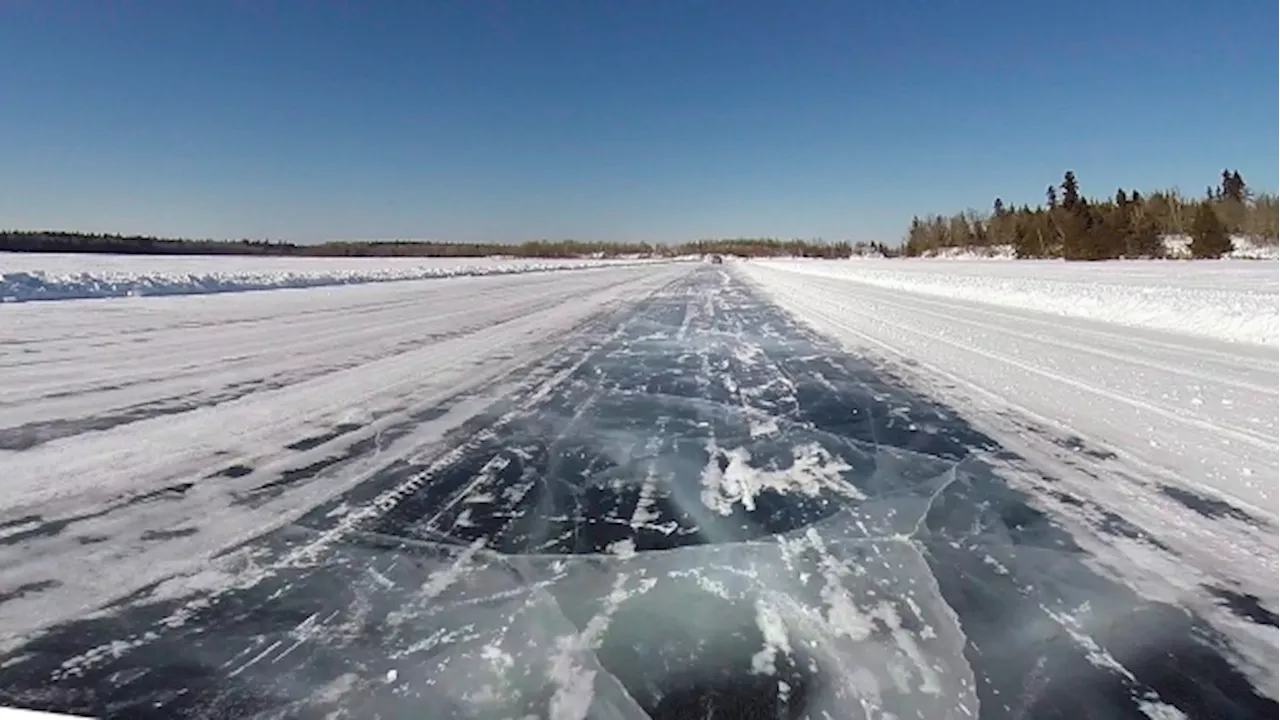 Ontario ice road and short winter seasonThis winter marked the shortest ice road season anyone can remember on Temagami First Nation.
Ontario ice road and short winter seasonThis winter marked the shortest ice road season anyone can remember on Temagami First Nation.
Read more »
 Maple syrup production season in Ontario cut short due to warm winterThe unseasonably warm weather is taking a uniquely Canadian toll on one industry: maple syrup production.
Maple syrup production season in Ontario cut short due to warm winterThe unseasonably warm weather is taking a uniquely Canadian toll on one industry: maple syrup production.
Read more »
